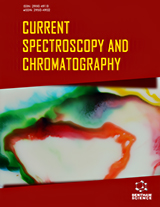Abstract
Background: Punica granatum L. (pomegranate) is one of the oldest edible fruits used for the treatment of countless diseases. The bioactivity of this fruit is mainly related to tannins, especially elagitannins. P.granatum fruit peel dried extracts (PPDEs) are widely marketed today and the lack of accessible quality control methods is a key to the variable and questionable quality of these products.
Objective: To develop a miniaturized spectrophotometric method for quantification of tannins in commercial PPDEs.
Method: Spectrophotometric method using Folin-Ciocalteu reagent was developed and validated for quantification of total polyphenols and polyphenols not adsorbed by hide powder in 17 samples of commercial PPDEs. Tannins content was calculated by the difference between total polyphenols and polyphenols not adsorbed by hide powder contents and expressed as pyrogallol. The UV/Visible microplate spectrophotometer was operated at 760 nm.
Results: The developed miniaturized method was precise, accurate, selective and linear, and has no rotational or translational matrix effect. This method significantly reduced the cost of the analysis: 82.2% with reagents, 84.7% in electricity consumption, and 56.3% in the total analysis time. The wide variability in tannins contents in commercial PPDEs (<1% to 14.20%) shows the importance of quality control, ensuring the therapeutic effect and safety of the extracts.
Conclusion: A miniaturized spectrophotometric method was successfully developed and fully validated, being appropriate for quantification of tannins of PPDEs in quality control routine analysis, as it showed to be a simple and cheaper method.
Keywords: Commercial dried extracts, green chemistry, miniaturized spectrophotometric method, pomegranate, Punica granatum L, quality control, tannins.
Graphical Abstract
[http://dx.doi.org/10.1039/C4RA11795F]
[PMID: 25624761]
[http://dx.doi.org/10.1016/j.jff.2014.12.017]
[http://dx.doi.org/10.1590/S1516-05722012000100015]
[http://dx.doi.org/10.1186/s12906-016-1132-y] [PMID: 27229852]
[http://dx.doi.org/10.1016/j.foodchem.2012.05.108] [PMID: 22953935]
[http://dx.doi.org/10.1089/jmf.2006.9.119] [PMID: 16579739]
[http://dx.doi.org/10.1016/j.jff.2009.02.005]
[http://dx.doi.org/10.1021/jf9010017] [PMID: 20349921]
[http://dx.doi.org/10.1007/978-1-4615-3476-1_15]
[http://dx.doi.org/10.1016/S0377-8401(01)00228-0]
[http://dx.doi.org/10.1007/s00114-002-0366-3] [PMID: 12451456]
[http://dx.doi.org/10.1111/j.1755-0238.2008.00007.x]
[http://dx.doi.org/10.1016/j.talanta.2011.11.076] [PMID: 22265564]
[http://dx.doi.org/10.1515/chempap-2015-0222]
[http://dx.doi.org/10.1590/S0100-40422014000100026]
[http://dx.doi.org/10.1021/jf063443g] [PMID: 17381116]
[http://dx.doi.org/10.1007/s10068-012-0049-6]
[http://dx.doi.org/10.1016/j.fct.2013.01.036] [PMID: 23380204]
[http://dx.doi.org/10.1016/j.proche.2014.12.030]
[http://dx.doi.org/10.1007/s13197-017-2727-0] [PMID: 28928529]
[http://dx.doi.org/10.1016/j.ijbiomac.2017.06.022] [PMID: 28600209]
[http://dx.doi.org/10.1007/s00217-017-2884-4]
[http://dx.doi.org/10.1016/j.indcrop.2017.07.022]
[http://dx.doi.org/10.1007/s00217-013-1981-2]
[http://dx.doi.org/10.1111/ijfs.12014]
[http://dx.doi.org/10.1021/jf400684n] [PMID: 23656584]
[http://dx.doi.org/10.1016/j.lwt.2014.07.025]
[http://dx.doi.org/10.1016/j.chroma.2016.12.017] [PMID: 27989467]
[http://dx.doi.org/10.1016/j.aca.2005.07.043]
[http://dx.doi.org/10.1007/s00216-016-9488-x] [PMID: 27020929]
[http://dx.doi.org/10.1021/ac961912f]
[http://dx.doi.org/10.1021/jf061674h] [PMID: 17090147]
[http://dx.doi.org/10.1002/jsfa.3423]




























